Protect this house!
4/4/2018Blood, bullets and attacks at local churches have many getting serious about safety.
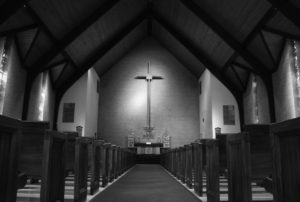 Violence against people of faith is nothing new. At some point during the first century, probably around 30 AD, Roman authorities crucified the very first Christian, a man named Jesus of Nazareth. The execution’s finer points — such as the number of nails used — are less historically certain, but however it was accomplished, it would have been brutal.
Violence against people of faith is nothing new. At some point during the first century, probably around 30 AD, Roman authorities crucified the very first Christian, a man named Jesus of Nazareth. The execution’s finer points — such as the number of nails used — are less historically certain, but however it was accomplished, it would have been brutal.
Modern-day national headlines are littered with death, destruction and terms like “active shooters.” Occasionally, some churches, synagogues and mosques get lumped in also, and Des Moines isn’t immune. In the past year, local news reports include the stabbing of a Catholic deacon, at least one fatality from late-night shootings in church parking lots, a suspected arson at a mosque, and, if we look slightly further back, additional arsons. Abroad, an Iowa man was murdered while delivering the Gospel and trying to help people in poverty.
Senseless violence is nothing new, but local religious leaders are looking for new answers to some tough questions: “How do we implement prudent safety protocols while maintaining a welcoming culture?” “Are armed protectors in the pews really necessary?” Maybe most of all: “Why is this happening?”
Deacon Joe: Why?
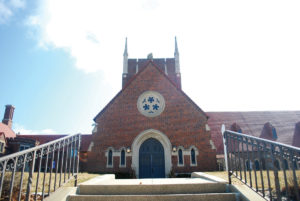 An 89-year-old church deacon was attacked with a kitchen knife at St. Augustin’s Church in Des Moines on Feb. 2, 2017. The female attacker wounded the deacon’s neck, face and hands.
An 89-year-old church deacon was attacked with a kitchen knife at St. Augustin’s Church in Des Moines on Feb. 2, 2017. The female attacker wounded the deacon’s neck, face and hands.
“We are naturally saddened by the violent action… ,” said Bishop Richard Pates in a church statement. “The present moment calls for prayer for Deacon Joe (Coan)’s full recovery… . We also pray earnestly for the alleged
perpetrator.”
Deacon Joe was hospitalized but survived the incident.
Now 90 years old, he is back at work. The woman charged with the crime is said to be dealing with mental health issues.
Pates also noted that this incident, along with others, puts the public “on notice…of the need to address the
situation of individuals with problematic issues.”
The question for many local church leaders is: How?
If God is for us, who can be against us?
“…If God is for us,” asks the Apostle Paul in his letter to the Romans (8:31), “who can be against us?”
Every morning for the last two decades, when Carl Chinn wakes up in his Colorado home, he pours a cup of coffee and fires up the Internet. The thought leader on international readiness and operations at faith-based organizations and crimes is on a perpetual quest to answer the apostle’s question.
“I’m sure I’ve missed a few mornings,” he says. “But almost every day I get up at 4 in the morning, and I comb
through the most violent stories that I’ve been able to automatically capture in the previous 24 hours.”
Chinn is a statistical expert on the subject of “deadly force incidents” or DFIs — a number that includes abductions and attempts, attacks, suspicious deaths, suicides and deadly force intervention or protection. Since beginning on Jan. 1, 1999, Chinn has recorded more than 1,700 DFIs at faith-based organizations. More than 800 of those resulted in non-accidental deaths. He says Americans are almost as likely to die at a house of worship as they are at a school.
“Evil has invaded sanctuary,” warns Chinn in his book, “Evil invades Sanctuary: The Case for Security in Faith-Based Organizations.”
The struggle to maintain a warm, welcoming atmosphere isn’t mutually exclusive to maintaining a secure house of worship. Retail businesses wouldn’t be in business without being welcoming, he says. And they wouldn’t stay in business if they weren’t reasonably secure. Safety is one of a sanctuary’s biggest draws. People who are fleeing the perils of the world crave a safe environment. In other words, safety is welcoming.
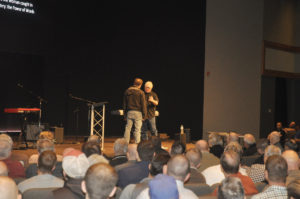
Retired policeman, minister and current safety expert Jimmy Meeks offered tips on how to keep churches safer at his Sheepdog Seminar hosted by Berean Church in Pleasant Hill on March 19. Photo by Jeff Pitts
Last month Chinn joined Jimmy Meeks and other nationally known safety instructors for a two-day Sheepdog Seminar at Pleasant Hill’s Berean Church. These presenters tour the country, opening the eyes of officials and offering safety advice and tips. The cost to attend was $49, and approximately 400 people registered for the event, which speaks to the community’s level of concern.
“Many DFIs happen at the smaller churches,” says Chinn. “Many churches feel, because they have a steeple on the roof, that they are immune from the things the rest of the world faces. We’re not.”
Of the 350,000 congregations in the United States, the overwhelming majority have weekly services with fewer than 150 people present, according to Chinn. To drive his point home about the need for protective measures at smaller institutions, he tells of Oklahoma Pastor Carol Daniels.
“She had three people in her church (congregation),” Chinn says.
“She got there early, and when the other people got there, they found her murdered and mutilated. They cut her up and set her hair on fire. It was an awful death.”
Active shooters, armed gunmen and other violent acts garner scads of media attention, and that is the focus of his research, but Chinn also warns of devastating tragedies that get less attention. Families are far more likely to be harmed by pedophiles at church than by DFIs. Sexual predators prey on the trusting nature of people within the faith-based atmosphere. Smaller venues lacking resources and protocols are the most vulnerable.
“They know they can get into a small group and groom them,” warns Chinn. “They develop the trust of a few close people, and a small church is ideal for that.”
Chinn says churches should do background checks when lining up youth-group leaders, but they should not solely rely on them. Pedophiles often have dozens of victims before getting caught. He advises creating protocols that assume everyone is guilty.
“An adult is never alone with a child,” he insists. “That should never happen.”
Do we need armed protectors in sanctuaries?
“You are just as likely to be killed on church property as you are in a school,” reiterates Jimmy Meeks. The retired policeman and long-time pastor says that attackers see churches as “soft” or unprotected targets.
Many houses or worship are reluctant to allow members to carry weapons on site for fear of the tension it could create. Others say the risk of gun-toting volunteers — who often lack training and the requisite skills to discern, in the heat of battle, a genuine threat from an innocent bystander — are more dangerous than the original threat.
But for churches, synagogues, mosques and other places of worship that can’t afford to pay police or professional security services, Meeks says that, along with other strategies, leaders should identify suitable men and women to become “sheepdogs” and get them training on how to protect the flock. ♦
QUESTION: How is St. Augustin’s Catholic Church in Des Moines handling potential threats in regards to church safety?
The unfortunate attack on Deacon Joe Coan at St. Augustin’s Catholic Church in Des Moines was an incident that would be difficult to prevent under any circumstances, according to Bishop Pates.
“There was no way to protect against that,” he says. The incident happened during the day, while church services were underway, and the attacker seemed intent on doing harm. But fortunately, Deacon Joe is recovering and doing well.
Pates says his church has assembled a task force to assess the odds of future attacks and to look into training a response team.
“We don’t want to become an armed camp,” he says. “That’s not who we are or what we are about.”
QUESTION: What are other local congregations doing to protect congregants?
Multiple churches understandably declined CITYVIEW’s request to speak about safety measures, saying they’d prefer not to discuss any plans, procedures or even if they have them. They say that doing so would provide useful information to potential perpetrators. But many houses of worship are taking action. Approximately 400 people are said to have registered for the Sheepdog Seminar. Other educational tutorials have also taken place, including one with the Department of Homeland Security and hosted by the Des Moines Area Religious Council.
Stefanie Bond, the public information officer for the Iowa Department of Homeland Security, said only one church has so far requested a site visit from her department, but about a dozen parochial schools have asked for assistance in security planning.
“Churches have not historically contacted our department to assist them with safety planning or training; however,
we recognize the importance of houses of worship developing and exercising emergency and security plans,” she
said via email. “Through site visits, we can support them by providing options for consideration to improve their
overall security and resilience.”
QUESTION: How is West Des Moines’ Lutheran Church of Hope responding to this issue?
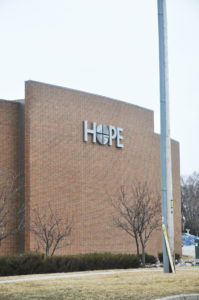 Following the massacre at Texas First Baptist Church in Sutherland Springs, Texas, on Nov. 5, 2017, Pastor Mike Housholder of Lutheran Church of Hope in West Des Moines offered his thoughts on the issue of church safety along with the protective measures in place at Hope. Housholder permitted CITYVIEW to print his message with edits for
Following the massacre at Texas First Baptist Church in Sutherland Springs, Texas, on Nov. 5, 2017, Pastor Mike Housholder of Lutheran Church of Hope in West Des Moines offered his thoughts on the issue of church safety along with the protective measures in place at Hope. Housholder permitted CITYVIEW to print his message with edits for
style and space constraints.
Hope’s response to the violence?
“We weep with those who weep. We pray (a powerful weapon) for those who mourn and for our world to embrace God’s call to respect the sanctity of life. We act for the sake of justice and peace, adding our voices — and listening
ears — to important conversations about the effectiveness of gun control laws and mental health care systems. In contrast, however, to the divisive voices — the Bible calls them “noisy gongs” — that dominate cable news, talk radio, and social media, we speak truth in love without demonizing or demeaning those who hold opposing views. We won’t become pawns for the left or right. Instead, we’ll find a third way.”
Hope’s safety measures?
“At every service, we’re blessed by the presence of a uniformed police officer. Our church family also includes several dozen members of the law enforcement community — they tell me that, while they worship, they keep a watchful eye on the flock at Hope, ready to move in case of an emergency. Additionally, the West Des Moines Police Department led an emergency training session for our entire church staff not so long ago. …(but) there’s a deeper issue that can’t be overcome, even by the most perfect laws, mental health care systems and proactive prevention
programs — sin. …the root cause of every murder, and every act of terror, war, violence, abuse, assault, division, and threat. On top of that, we’re powerless to overcome sin on our own. …The truth is, this world needs a Savior — and our Savior comes! His name is Jesus — which literally means “the One who saves.” … So, we don’t run away and hide in fear. Instead, secure in the assurance of the eternal promises of our Savior, we press on, living right now with confidence and hope, and we seek to share that hope with the world around us. Keep the faith.”
SHEEPDOG TIPS
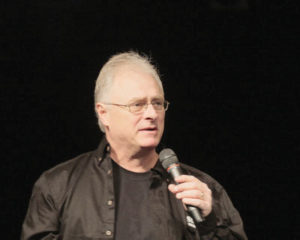 “What’s inside your church is a lot more valuable than what’s inside Fort Knox,” says safety expert Jimmy Meeks.
“What’s inside your church is a lot more valuable than what’s inside Fort Knox,” says safety expert Jimmy Meeks.
But don’t put your church into lockdown mode.
“You don’t need to stand in a corner wearing sunglasses looking like a secret service agent,” he says. “Be a sheepdog, actively looking for unfamiliar faces to greet.”
Identifying newcomers doesn’t have to be confrontational. He says newcomers generally expect to be greeted at church, so be alert, looking and listening and paying attention. He also says sheepdogs should quit worrying about
hurting someone’s feelings.
“If someone is wearing a trench coat in July,” he advises. “Ask them why.”
Other sheepdog tips:
• Upon arriving to open up the church building, shake all of the doors to see if they are locked. If they are open, that means they have been open, and a potential threat exists.
• Be careful if you are carrying a firearm, and never take it out unless it is time to use it. Don’t ever take it out just to show someone.
• Prepare mentally to be a sheepdog. When it comes to preparation. Meeks offers an example, saying Jesus spent 30 years training for ministry and only three years doing it.
“He spent 89 percent of his life in training,” says Meeks. “Men don’t rise to the occasion. They sink to the level of their training.”
Hate happens to all religions
Christians are not the only members of the religious community that are targets for attack. The
Anti-Defamation League (ADL) released its “Audit of Anti-Semitic Incidents” in February along with a
statement saying there were “…1,986 anti-Semitic incidents reported across the United States in 2017,
including physical assaults, vandalism, and attacks on Jewish institutions.”
• The findings represent a 57 percent increase from 2016. This is the largest single-year increase since
the ADL started tracking the data in the 1970s. Much of the rise was attributed to an increase in incidents
at schools and colleges.
• Nine incidents were reported in Iowa for 2017, but no assaults were noted. At least three of these
incidents were in Des Moines.
DEADLY FORCE STATISTICS
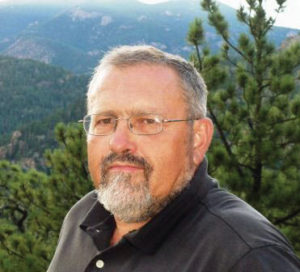 No profile exists for active shooters at houses of worship, according to FEMA, but Chinn’s statistics note the following:
No profile exists for active shooters at houses of worship, according to FEMA, but Chinn’s statistics note the following:
• Most DFIs happen at smaller churches with less than 150 congregants.
• First blood usually originates outdoors — only 26 percent of DFIs occurred inside.
• 91 percent of assailants were men.
• 75 percent of the DFIs on record involved lone attackers.
Other observations by Chinn:
• Prior to 1963, there had never been a mass murder — defined as four or more victims in a single attack associated with a faith-based property.
• Last year’s total of 118 non-accidental deaths at houses of worship nearly doubled the previous high of 77 that was set in 2015.
• Of the incidents with a discernible motive, 26 percent were driven by robbery; 16 percent involved some sort of domestic relationship; and 11 percent were due to mental illness. Only 6 percent of the occurrences were motivated by religious bias.
• Iowa has endured a dozen DFIs since May of 2014; six were in Des Moines.
NOTE: Many of the incidents were not related to the congregation’s members and/or occurred late at night. Chinn says his goal is to document danger on faith-based property, regardless if church services are in session.
SOURCE: You can view Carl Chinn’s data by visiting www.carlchinn.com.
Iowa missionary is murdered while serving the poor
No one is immune from evil. That is true inside the Hawkeye state, abroad and even while attempting to help the poorest of the poor in third-world countries.
Two years ago, the Jamaican police found two severely beaten men dead by the side of a rural road. One was determined to be 48-year-old Iowa man Randy Hentzel. The other was his friend, 53-year-old Harold Nichols. The two friends lived in Jamaica with their families, delivering the Gospel as missionaries. They were on their way to check on the foundation of a house that was to be built for someone.
Hentzel’s surviving family now lives in Ankeny. ♦




















